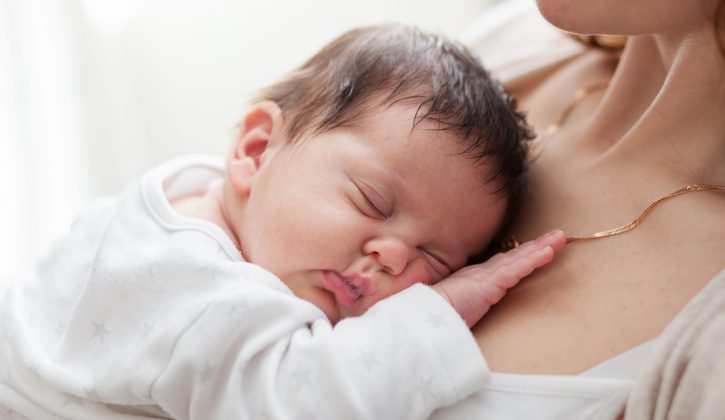I remember soon after my son was born, lying awake between my husband (snoring) on one side and my three-week-old baby boy (sleeping and grunting and snorting) on the other.
I was feeling anxious, low and overwhelmed. Just having finished my first year of work as a perinatal mental health therapist, I was wondering about my mood and if I was okay. As I lay there in bed, I ran through the Edinburgh Postnatal Depression Scale (the EPDS is used commonly as a diagnostic tool for postpartum depression). ‘So, I’m not depressed.’ I thought to myself, ‘I just made a mistake, I’m not really meant for this motherhood thing.’
A few weeks later, my baby started sleeping for longer stretches (God love him!) and I felt brighter and happier and fell in love with my wee one then. It had been tough going in the period of ‘baby blues’, but from then onward, it got easier (and also harder in some ways) as he grew.
I often think about how things might have been different if he hadn’t slept or if I hadn’t had the help that I did (practical and emotional support from partner, family and friends), or the training provided by my work experience around adjustment to motherhood and mental health.
This is why I am sharing this blog post and want to let you know about the signs and symptoms of Postpartum Depression (PPD) and Postpartum Anxiety (PPA) and to know that you are not alone and that support is available. If you have PPD/PPA or are struggling with the adjustment to motherhood, it will most definitely get better if you connect with the help you need.
Most women experience emotional adjustments and challenges after having a baby. Studies say up to 80% of women experience baby blues, or postpartum blues. Baby blues typically start in the first few days after giving birth and improve over the first four to six weeks. Symptoms include feeling emotional, crying, irritability, difficulty sleeping, difficulty concentrating, and changes in appetite. Approximately 13% of women are later diagnosed with clinical Postpartum Depression (PPD). PPD is a more serious condition involving a major depressive episode.
Postpartum depression can develop any time after delivery. The symptoms can look similar to postpartum baby blues, but they persist nearly every day, feel more intense and severe, and last for more than a two-week period. Symptoms include agitation, irritability, excessive anxiety and worry (e.g. regarding baby’s health, breastfeeding issues, financial issues, own appearance), lack of pleasure/enjoyment, difficulty sleeping, poor interest/concentration, guilt and self-critical thoughts, disconnection from baby, crying for no reason, anger and irritability with others, thoughts of suicide or escape (e. running away), and intrusive images of harm coming to baby or harming your baby. Most women experience a mix of depressed feelings and anxious feelings with PPD, so it often doesn’t look like a typical clinical depression.
Being a new mom can be anxiety-provoking. You are now responsible for the care of another human being. It may take time to develop comfort and confidence in your role as the caregiver for your baby. If your worry becomes excessive and/or interferes with your daily functioning, it is important to see someone for help as you may have postpartum anxiety. Research has found that 15-40 per cent of new mothers experience symptoms of anxiety. Anxiety symptoms can be experienced with depression or may exist on their own. Symptoms of anxiety include panic attacks, excessive worry, difficulty sleeping, extreme irritability, poor concentration, physical symptoms such as stomach upset/nausea, heart palpitations, shortness of breath, numbness or tingling, and headaches.
Symptoms of depression and anxiety may be difficult to manage and some of the symptoms can be confusing and upsetting to experience. Postpartum depression or anxiety doesn’t always start right away. Sometimes it can develop slowly and only become more prominent later in the postpartum period. Whether you think you are experiencing a perinatal-related mood and anxiety disorder or are just wondering about what you are experiencing, talk to your health care provider. Getting the support you need during this time can be essential to maintaining good mental health.
The Reproductive Life Stages Program at Women’s College Hospital is currently recruiting participants for our online postpartum support group. Click this link to find out more and/or to register.
Tagged under: postpartum depression.,dealing with postpartum depression,how to deal with postpartum depression,baby blues,postpartum anxiety
Category: wellness






